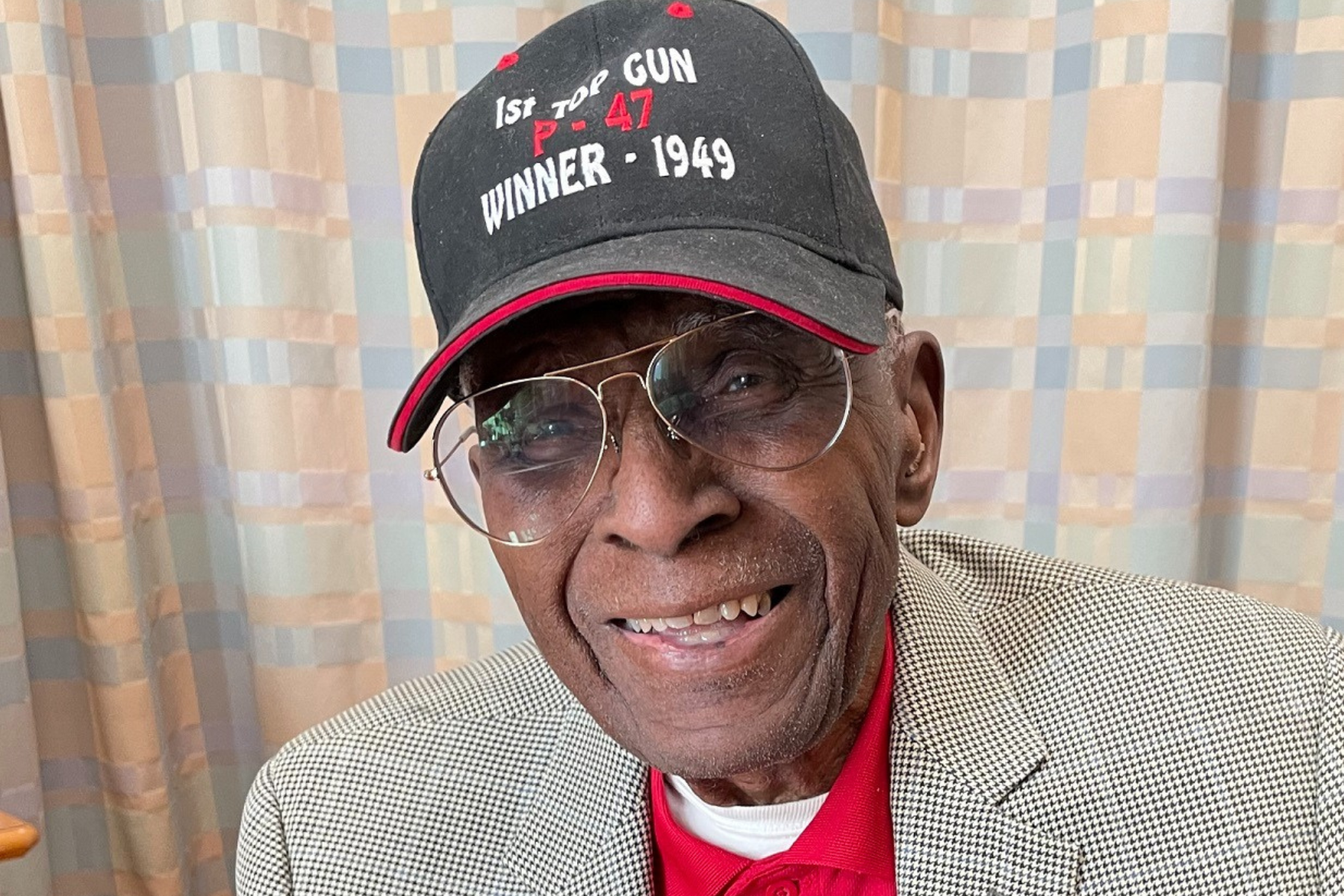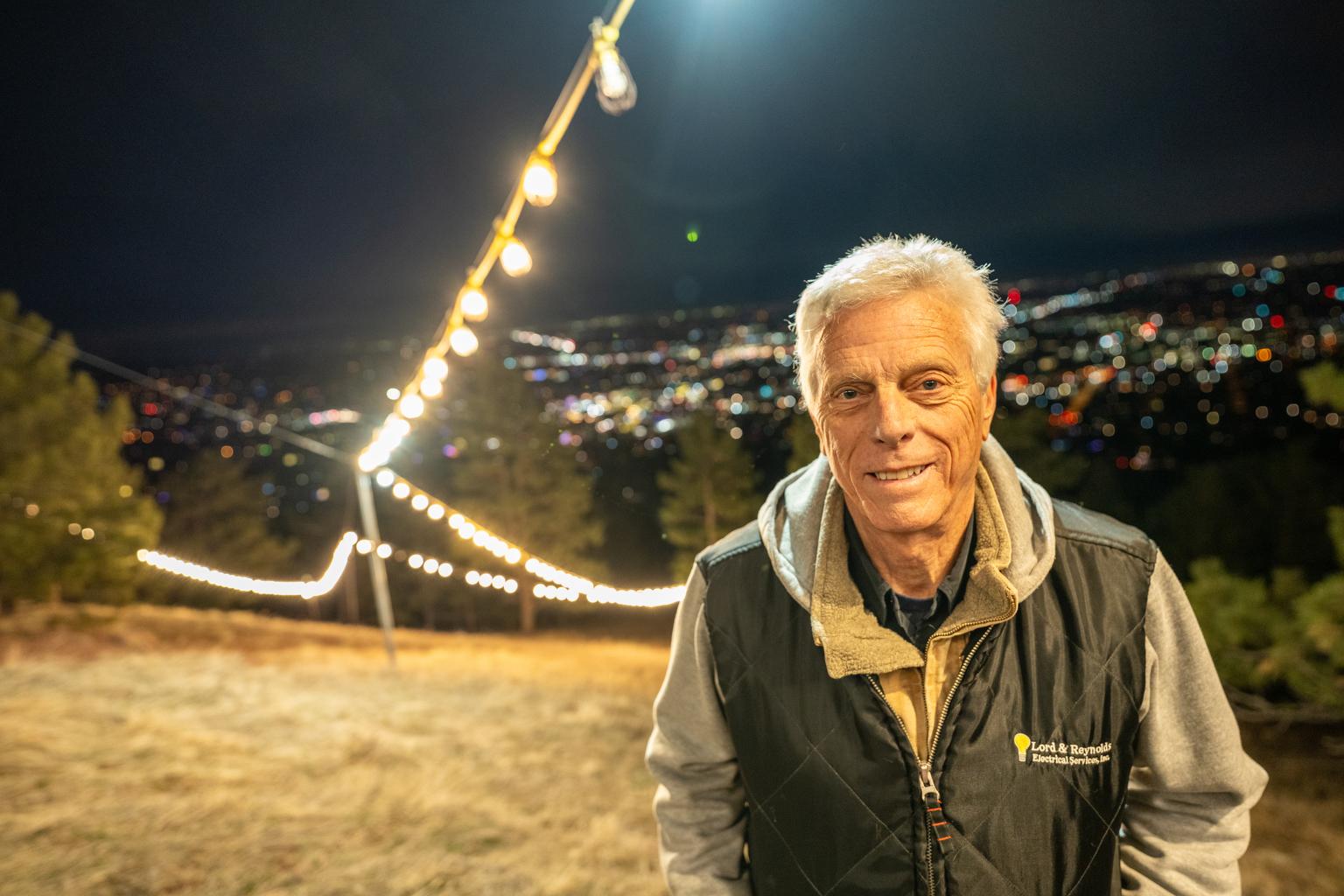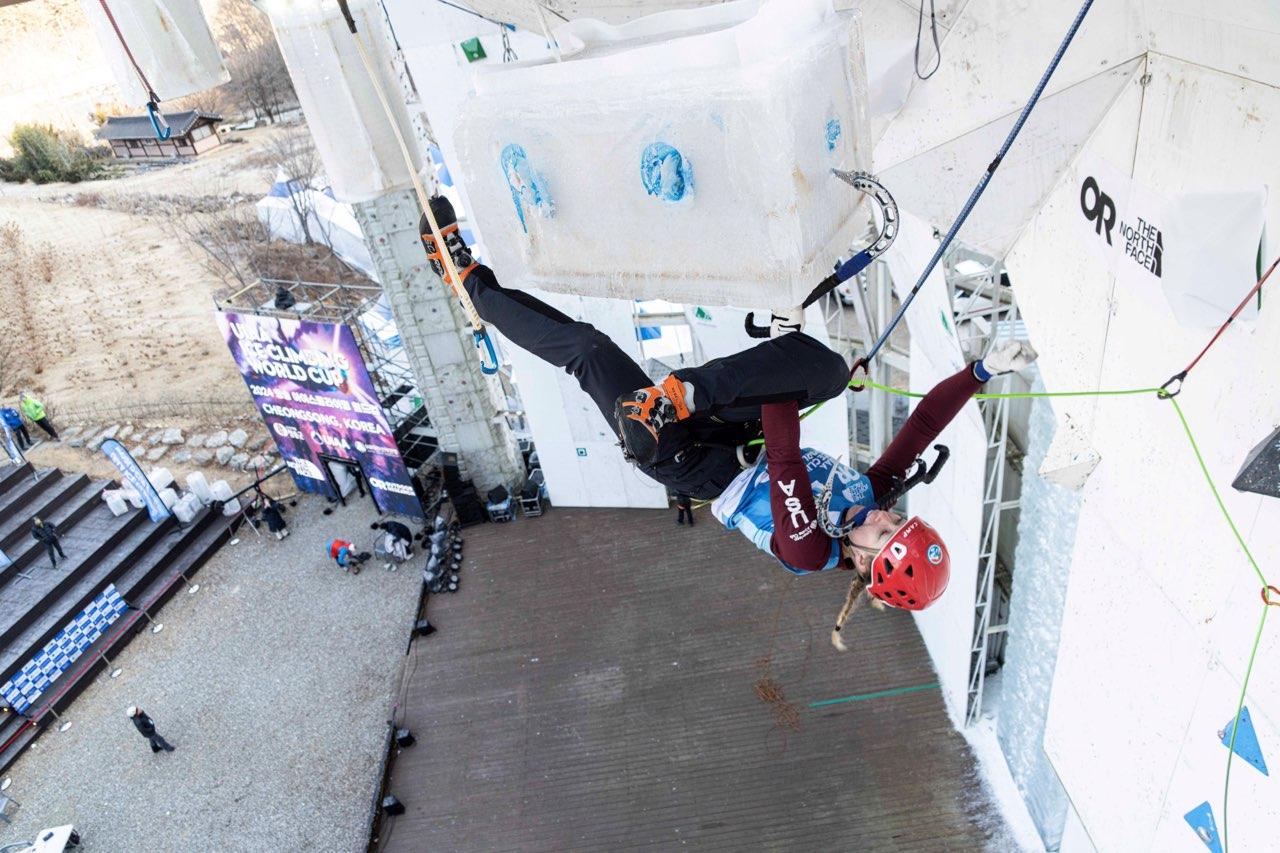
Colonel James Harvey, 101, maintains a dry sense of humor which, along with sheer skill and determination, likely helped him surmount the obstacles he faced during his long life, including some of the current challenges that come with old age. When asked a question, he’s not afraid to poke fun at himself.
“Let me get my thoughts together … it will only take six or seven hours.”
Asked about career choices, Harvey said he was pretty young when he decided what he wanted to do with his life.
“I was in my front yard and I heard this noise overhead. I looked up,” Harvey said. “It was a flight of four P-40s flying in formation, and I said, ‘I'd like to do that one day.’”
But flying jets wouldn’t come easily. Harvey applied to the military’s flight training program and was rejected.
“They weren't accepting Negroes in the program. They said we didn't have the mentality to fly aircraft or operate heavy equipment,” he recounts. “We were inferior to the white man. We were nothing.”
Instead of attending flight school, Harvey was drafted into the Army. But he persevered and applied again. This time, Harvey was sent to Bolling Air Force Base in Washington, D.C. to take the entrance exam.
“I went with nine white guys and myself, took the exam and let the dust clear,” Harvey said. “There were two of us (left) standing and off I went to flying school at Tuskegee, Alabama.”
At Tuskegee, Harvey said his primary trainers were other officers of color who had two jobs: One: teach them to fly. And two: desensitize them to the name-calling they’d be subjected to by the white instructors.
“It was to condition us to get along and stay cool. Keep your cool,” Harvey recalls.
He was one of the top students in his class.
“I was a perfectionist and perfectionists don't settle. I breezed right through flying school,” he said.
| Whether you're aging yourself or caring for someone who is, what questions do you have? Email us at [email protected] or leave a voicemail at 303-871-9191 X 4480. |
Harvey became one of about a thousand Black military pilots known as Tuskegee Airmen, who distinguished themselves as among the best U.S. fighters during World War II and beyond. Harvey himself was the first Black fighter jet pilot to fly combat missions in Korea.
In 1949, Harvey and a team of Tuskegee Airmen underscored their flying prowess when they flew to Las Vegas to compete in the first-ever Top Gun competition. The events included aerial gunnery, dive bombing, skip bombing and rocket firing. The Tuskegee team won everything.
“That ticked ‘em off. They're still ticked off,” Harvey laughed. “That was the first weapons meet ever, and we weren't supposed to make it that far.”
Harvey said that when officials announced the Tuskegee team had won, there was scattered applause and the large silver trophy ended up in storage until it was recovered 70 years later and displayed at the National Museum of the US Air Force at Wright-Patterson AFB, Ohio.
But he faced new racial barriers when in 1965, he retired from the military and sought a job in the civilian world. Likely among the most qualified pilots to seek work at a commercial airline, he applied for a job at United Airlines but was told he was too old for the job. He found out later white applicants weren’t subject to the same age restrictions.
“The airlines did not want a customer getting on an airplane, and maybe he happened to look into the cockpit and see a person of color behind the controls. Bad business,” Harvey recalled, “So that's why I was not hired by United Airlines. I was qualified. I was overqualified.”
Instead, Harvey went on to work for the packaged meat company Oscar Meyer, becoming the company’s first Black distribution center manager. He said he didn’t skip a beat when one day at a conference, the company’s CEO asked him where he’d want to live and work. His answer: Colorado, a place that had been hospitable to him when he’d traveled there for work. The state’s sunny weather was another factor.
Harvey’s lived in metro Denver ever since and now resides at the Veterans Community Living Center in Aurora.
He said over the years, he's learned a lot of lessons in his life, like how to make a marriage work.
“I was in the bathroom with my wife and she was using toothpaste. She squeezed it from the middle. I said, ‘You don't squeeze toothpaste or anything that comes out of a tube from the middle out.’ You don't. You squeeze it from the bottom,’” he joked, “But zip your mouth and keep quiet if you want it to work.”
Harvey was married twice. He has four daughters.
A year ago, Colonel Harvey was officially recognized for his military service with an honorary promotion to the rank of Colonel during halftime at a US Air Force Academy football game. Two planes flew overhead –the P-47 Thunderbolt and the P-51 Mustang.-- to honor him and the other Tuskegee airmen.
He said his secret to a long and healthy life is pretty simple:
“Be kind to others. Treat everyone with respect until proven otherwise,” Harvey said. “Have a good sense of humor, have a good laugh every day and have a good belly laugh – fall on the floor laughing – at least once a month.”









